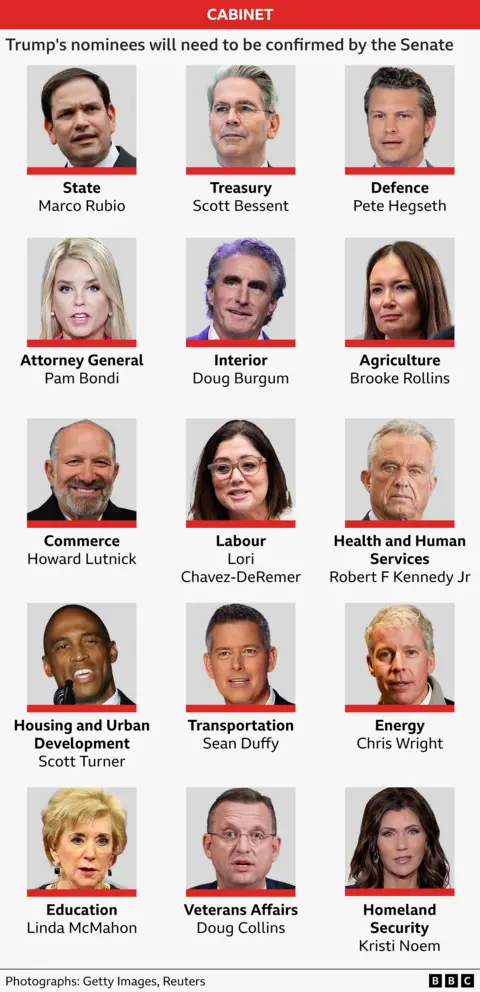The global trade landscape has been significantly reshaped under the Trump administration, with far-reaching implications for international relations and economic policies. The administration's approach to trade has often been characterized by a focus on bilateral agreements and the imposition of tariffs as leverage in negotiations. This strategy has led to both tensions and opportunities, impacting countries around the world, including major economies like India. As the U.S. and India edge closer to sealing a significant trade deal, the implications for both nations are profound, touching on economic growth, market access, and geopolitical alliances.
In an era marked by increasing trade protectionism, the potential agreement between the United States and India stands out as a pivotal moment in their bilateral relationship. Despite ongoing tariff tensions that have strained ties, both countries recognize the mutual benefits of fostering stronger economic partnerships. This development not only signifies a shift in how these two nations approach trade but also highlights their shared interest in navigating the complexities of global commerce amidst shifting geopolitical dynamics. As we delve deeper into this topic, it becomes clear that such deals could redefine the contours of international trade in the coming years.
Global Trade Dynamics and Policy Shifts
Since the inception of the Trump administration's new Global trade protectionism risk in December, there has been a cascade of tariff measures affecting numerous trading partners. These actions reflect a broader trend toward reevaluating existing trade agreements and imposing stricter conditions on imports. By doing so, the administration aims to rebalance trade deficits and protect domestic industries from foreign competition. However, this approach has sparked concerns about retaliatory measures from affected countries, potentially leading to protracted trade disputes.
For instance, the recent announcement of tariffs on steel and aluminum imports exemplifies the administration's commitment to safeguarding American manufacturing jobs. While proponents argue that such measures will boost local production and employment, critics warn of higher costs for consumers and downstream industries reliant on imported materials. Moreover, these unilateral decisions may strain diplomatic relationships, necessitating careful negotiation to mitigate adverse effects while preserving national interests.
In light of these developments, enhancing supply chain resilience emerges as a critical priority for businesses operating across borders. Companies must assess their vulnerability to policy changes and explore alternative sourcing strategies to ensure continuity in operations. Additionally, they should engage actively with policymakers to advocate for balanced approaches that promote fair trade practices without undermining global cooperation.
Navigating Geopolitical Challenges in Trade Relations
Amidst heightened tensions over President Trump's Middle East peace plan, Israel launched another round of military strikes against Gaza. Although seemingly unrelated to economic matters, such incidents underscore the interconnectedness of regional conflicts and global trade dynamics. Political instability can disrupt supply chains, increase transportation risks, and create uncertainty among investors, thereby affecting overall economic performance.
In parallel, efforts to enhance supply chain resilience gain added significance as organizations strive to adapt to evolving regulatory environments. Supplemental tariffs imposed even within free trade agreements highlight the need for flexibility and adaptability in managing cross-border transactions. Furthermore, government policies aimed at reshoring manufacturing activities present both opportunities and challenges for companies seeking competitive advantages in increasingly fragmented markets.
To address these complexities effectively, stakeholders must collaborate closely to identify emerging trends and devise innovative solutions tailored to specific industry needs. Public-private partnerships can play a crucial role in fostering dialogue and sharing best practices, ultimately contributing to more robust and sustainable supply networks capable of withstanding future disruptions.
Economic Impacts of Trade Tensions
The prolonged US-China trade tensions have had detrimental effects on various sectors within both economies. Consumers bear the brunt of increased prices resulting from tariffs, while producers face reduced demand due to diminished export opportunities. Consequently, businesses operating in affected industries experience lower profitability margins and constrained growth prospects. Addressing these challenges requires strategic planning and investment in diversification initiatives to reduce dependency on any single market.
Market unease stemming from escalating trade disputes manifests through volatile stock prices and fluctuating currency values. Investors remain cautious amid uncertainties surrounding resolution timelines and long-term implications of current policies. Financial institutions respond by adjusting lending criteria and revising forecasts based on revised assumptions regarding future economic conditions. Such adjustments ripple throughout financial systems, influencing borrowing costs and capital allocation decisions.
Looking ahead, resolving outstanding issues necessitates constructive dialogue and compromise from all parties involved. Policymakers must prioritize stability and predictability in crafting legislation designed to foster inclusive growth and equitable distribution of resources. Simultaneously, fostering greater transparency and accountability in governance structures helps build trust among trading partners, paving the way for mutually beneficial outcomes.

